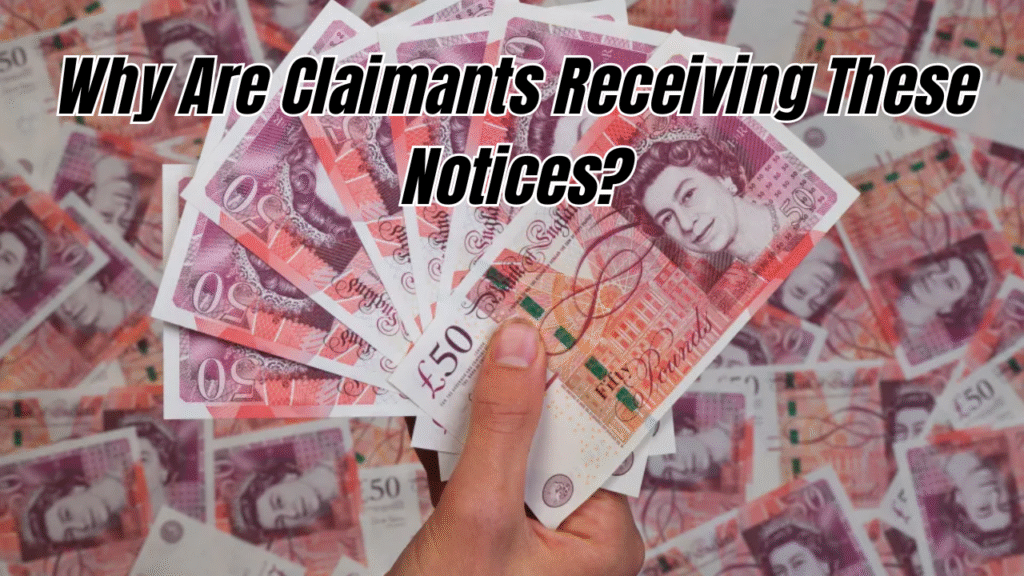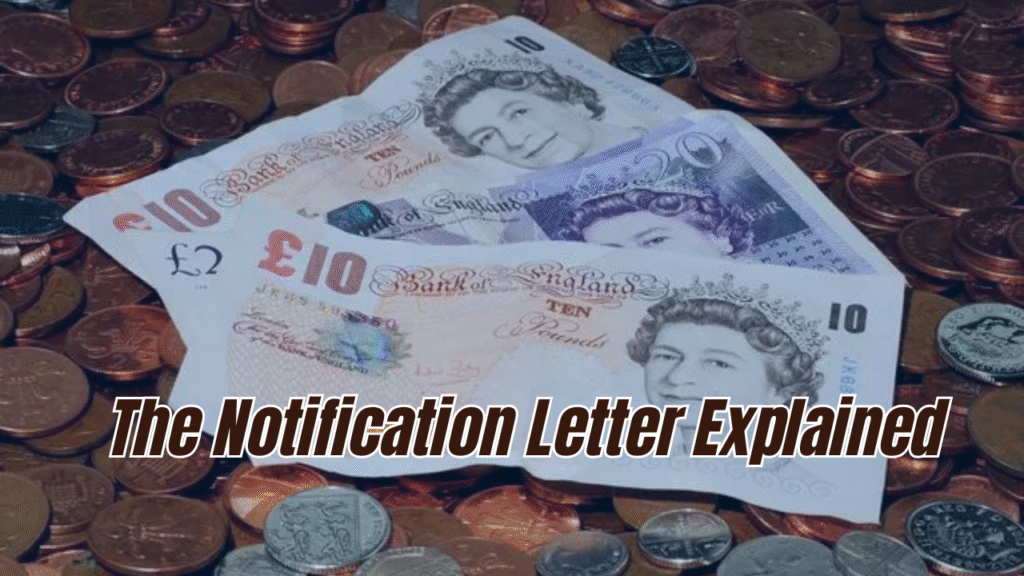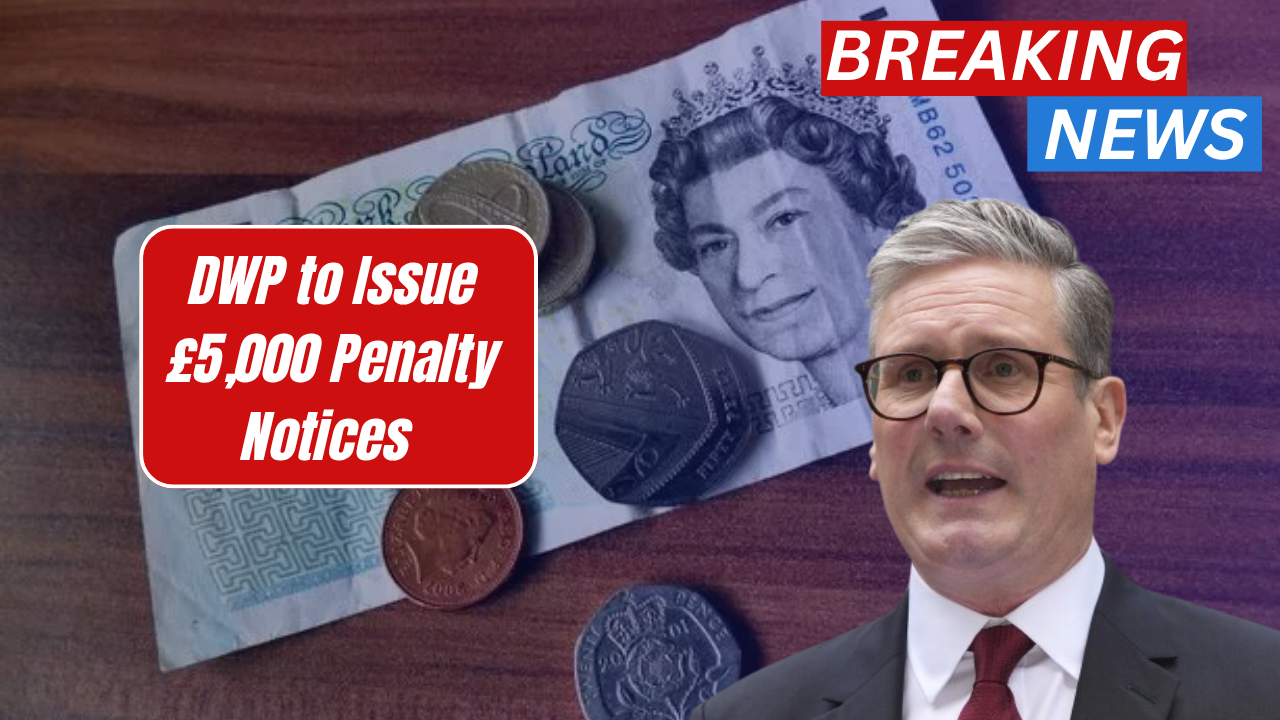1. Introduction
In June 2025, thousands of UK benefit claimants may receive notification letters from the DWP (Department for Work and Pensions) regarding potential fines of up to £5,000. These civil penalties are not new—but their enforcement has become more robust due to enhanced data sharing, algorithmic fraud detection, and compliance checks.
Whether it’s due to unintentional omission, failure to report a change, or deliberate false claims, this penalty could have serious financial consequences for affected individuals.
2. What Is the £5,000 DWP Fine?
The £5,000 fine is a civil penalty imposed by the DWP under the Welfare Reform Act 2012. It is not a criminal conviction but rather an administrative fine for:
- Misrepresentation of information
- Failure to report a relevant change of circumstance
- Causing an overpayment of benefits
The maximum amount a claimant can be fined without a court process is £5,000.

3. Why Are Claimants Receiving These Notices?
In June 2025, claimants might receive letters due to:
- Real-time data mismatch
- DWP flagging anomalies in income, work, housing, or household status
- Unreported savings or assets
- Crosschecks with HMRC, DVLA, or banks
- Late responses to compliance surveys
The DWP has ramped up its use of AI-based fraud detection and data-matching tools that automatically red-flag inconsistencies.
4. The Legal Basis of the Civil Penalty
Under Section 115C of the Social Security Administration Act 1992, as amended by the Welfare Reform Act, DWP may impose a civil penalty if:
- An overpayment has occurred
- The overpayment resulted from the person’s failure to take reasonable care
- There is no evidence of fraud, but negligence is proven
A civil penalty is separate from benefit repayment.
5. Key Triggers for DWP Investigation
| Trigger | Description |
|---|---|
| Unreported change in income | Claimant starts job or gets a pay rise |
| Change in household | A partner moves in or out |
| Savings above the threshold | Undeclared inheritance or bank account |
| Incorrect housing details | Lying about rent or living alone |
| Not declaring overseas travel | Away from UK for >4 weeks |
| Third-party tip-offs | Reports from employers, neighbours |
6. Types of Benefits Most Affected
The DWP may issue fines on these benefit types:
- Universal Credit
- Personal Independence Payment (PIP)
- Housing Benefit
- Employment and Support Allowance (ESA)
- Jobseeker’s Allowance (JSA)
- Pension Credit
- Attendance Allowance

7. The Notification Letter Explained
A notification letter typically includes:
- Details of the suspected misreporting
- The amount of overpayment
- The civil penalty imposed
- How to repay and appeal
- A deadline for response
The letter is not a criminal charge, but it should be taken very seriously.
8. Difference Between Civil Penalty & Criminal Prosecution
| Civil Penalty | Criminal Prosecution |
|---|---|
| Fine up to £5,000 | Unlimited fines or imprisonment |
| Administered by DWP | Prosecuted through magistrates/crown court |
| Based on negligence or omission | Requires intent to defraud |
| Recorded internally only | Recorded as a criminal offence |
9. The Role of Compliance Officers
DWP compliance officers:
- Conduct interviews under caution
- Request supporting documents
- Review your full benefit history
- Can recommend penalties or prosecutions
If they find the omission was unintentional but careless, they may suggest a £5,000 fine rather than a court case.
10. Case Study Examples
Case 1: John, 67
- Fails to report £7,000 inheritance
- Overpaid Pension Credit by £1,500
- Issued a £1,500 repayment + £2,000 fine
Case 2: Emily, 45
- Didn’t declare a partner moved in
- Overpaid Housing Benefit
- Fined £5,000 as maximum civil penalty
11. What to Do If You Receive a Notification Letter
- Read the letter carefully
- Call the DWP helpline
- Request a breakdown of overpayment
- Ask for reconsideration or appeal rights
- Prepare documentation to defend your case
- Seek legal or welfare advice
12. Grounds for Appealing the Penalty
You can appeal if:
- You believe the fine is unjustified
- The DWP used incorrect information
- The overpayment was not your fault
- You reported changes but they were ignored
You have the right to request a Mandatory Reconsideration before it proceeds to an independent tribunal.
13. Timeline of DWP Enforcement
| Stage | Action |
|---|---|
| Detection | Automated or manual flag |
| Investigation | Review by compliance officer |
| Notification | Letter sent to claimant |
| Repayment Plan | Options discussed |
| Civil Penalty | Imposed if appropriate |
| Appeal | Within 30 days |
14. How Overpayments Are Calculated
DWP calculates based on:
- The start date of the issue
- The amount of weekly benefit overpaid
- How long the error went uncorrected
- Whether the claimant benefitted from the error
15. When Fines Are Applied Without Warning
A £5,000 civil fine can be added without prior consultation if:
- The case is clear-cut
- Paperwork proves non-disclosure
- The claimant ignored DWP requests
16. Proactive Steps to Avoid Fines
✅ Report any change within 14 days
✅ Keep copies of letters sent to DWP
✅ File updates via online portals
✅ Record names and dates of phone calls
✅ Ensure clarity in benefit applications
17. How DWP Crosschecks Claims
DWP accesses:
- HMRC tax records
- PAYE income details
- Bank and savings accounts
- DVLA vehicle ownership
- Electoral rolls and housing records
They use Real Time Information (RTI) and Connect AI software to detect inconsistencies.
18. Digital Monitoring & Data Matching Explained
Using advanced systems, DWP matches:
- Claimed benefits vs earned income
- Property ownership via Land Registry
- Use of social media & geolocation data
- Employment status vs benefit declarations
This increases speed and accuracy in enforcement.
19. Impact of the Fine on Future Benefits
- May reduce future benefit payments through deductions
- Affects credit score if not repaid
- May delay or complicate future claims
- DWP may use debt recovery agencies
20. Conclusion
A £5,000 DWP fine is serious, but it isn’t the same as a fraud conviction. Still, claimants must treat notification letters with urgency. The fine is avoidable—but only if you keep DWP fully updated on changes.
To avoid penalties:
- Understand your obligations
- Keep records
- Act promptly
- Seek advice if unsure
The June 2025 wave of letters is part of a broader effort to improve benefit integrity—but claimants deserve transparency, fair treatment, and due process.
21. FAQs
1. Is the £5,000 DWP fine a criminal charge?
No, it is a civil penalty, not a criminal conviction. It is issued for carelessness, not intentional fraud.
2. Can I appeal the fine?
Yes, you can request a Mandatory Reconsideration and escalate to a tribunal if necessary.
3. How will I know if I’ve been fined?
You will receive a letter from the DWP detailing the overpayment, reason for the fine, and next steps.
4. What if I cannot afford to pay the fine?
The DWP allows for payment plans, or can deduct from ongoing benefit payments.


